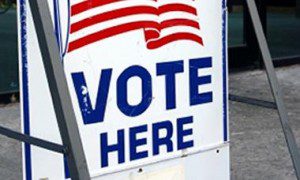While the state itself has stayed out of a fight against the Voting Rights Act of 1965 set to hit the U.S. Supreme Court this week, Florida isn’t absent from the arguments about the law.
In briefs both for and against an Alabama county’s request that the justices strike down a key provision of the nearly 50-year-old law, the recent battle over Florida’s early-voting changes takes center stage. While supporters of so-called “preclearance” say the Florida case shows the need for continued federal oversight of voting changes, opponents say the case represents the overreach that the law has enabled.
Under preclearance, nine states and almost 70 cities and counties with a history of racial or language discrimination must have any changes in voting and elections procedures approved by the U.S. Department of Justice or a three-judge federal panel. Five Florida counties are covered by the law’s Section 5: Collier, Hardee, Hendry, Hillsborough and Monroe.
The state of Florida has not filed a brief in the case, though the state challenged the law when it asked a panel of judges to preclear a reduction in early voting days. The panel never ruled on that part of the lawsuit.
But the Florida preclearance fight — which essentially ended when four of the five counties agreed to maximize the number of hours allowed under the new law — crops up repeatedly in the filings in Shelby County v. Holder, which will be argued before the court on Wednesday.
Defenders of the law point to the preclearance process as a necessary check, noting that it was only after the federal judges rejected the new early-voting law that Florida collected promises from all of the covered counties except Monroe to allow the expanded number of hours on the remaining voting days. Monroe County’s supervisor of elections said he preferred having more voting days to the same number of hours stretched over fewer days.
Minority voters are more likely to vote early than their white counterparts.
“There is simply no question that without Section 5, a disproportionate number of minority voters in Florida would have been deterred from exercising their right to vote in 2012,” says a brief filed on behalf of Congressman John Lewis, a Georgia Democrat and icon of the civil rights movement.
Legal groups that have gotten involved in preclearance cases, including the Florida State Conference of the NAACP, said the Florida case and three others cut against the idea that preclearance isn’t needed.
“Rather, as determined by four unanimous three-judge panels in 2012, minority voters in Texas, South Carolina and Florida recently faced the very real possibility of moving backwards in their hard-won progress as a result of decisions made by state legislators,” the brief says. “Section 5 prevented that result.”
Some opponents of preclearance, though, see a law that has allowed federal officials to micromanage state elections in areas covered by the law.
“Changes to early voting in Florida require preclearance, although many states do not even offer opportunities for early voting,” says a brief from the Justice and Freedom Fund, a conservative group based in California.
The only brief filed by a group in Florida comes from a Florida A&M University professor, 46 students and six organizations tied to FAMU’s College of Law.
That filing, from Professor Patricia Broussard, argues that the law should remain because requiring people in covered areas to sue under the Voting Rights Act is a more time-consuming process and could drag out beyond an election altered by a new law.
“Most importantly, once the election has passed, adequate redress is impossible,” the brief says. “Setting aside elections or shortening the terms of those elected is by its very nature inadequate because for a period of time, citizens will have been governed by officials that they did not choose.”
by Brandon Larrabee



